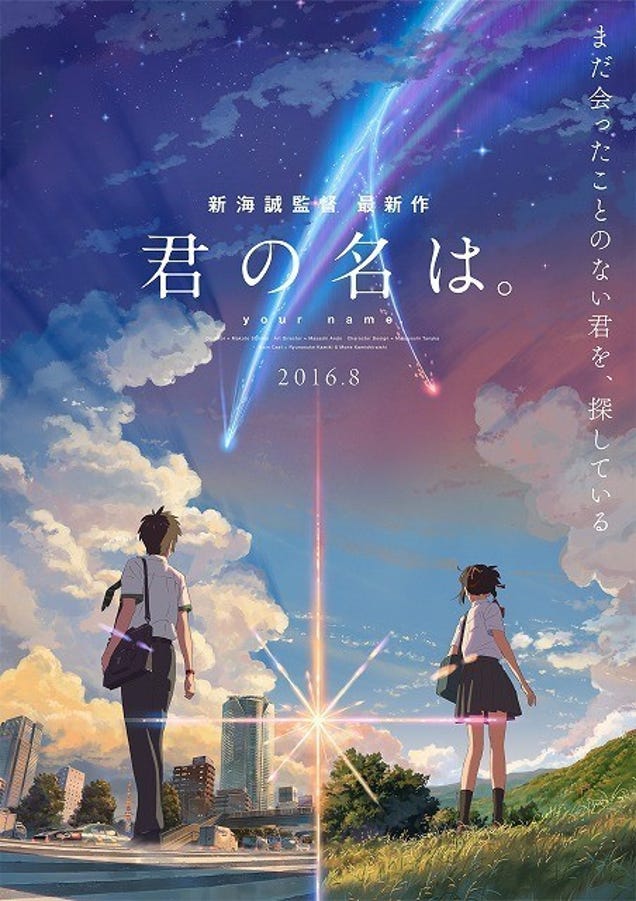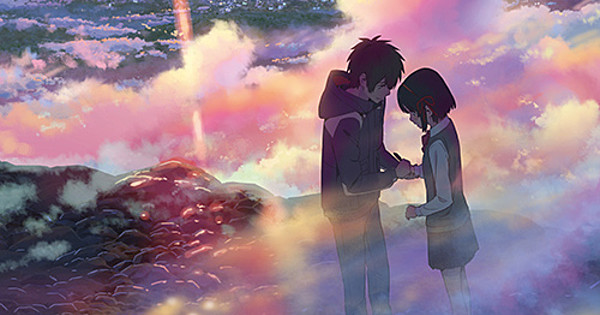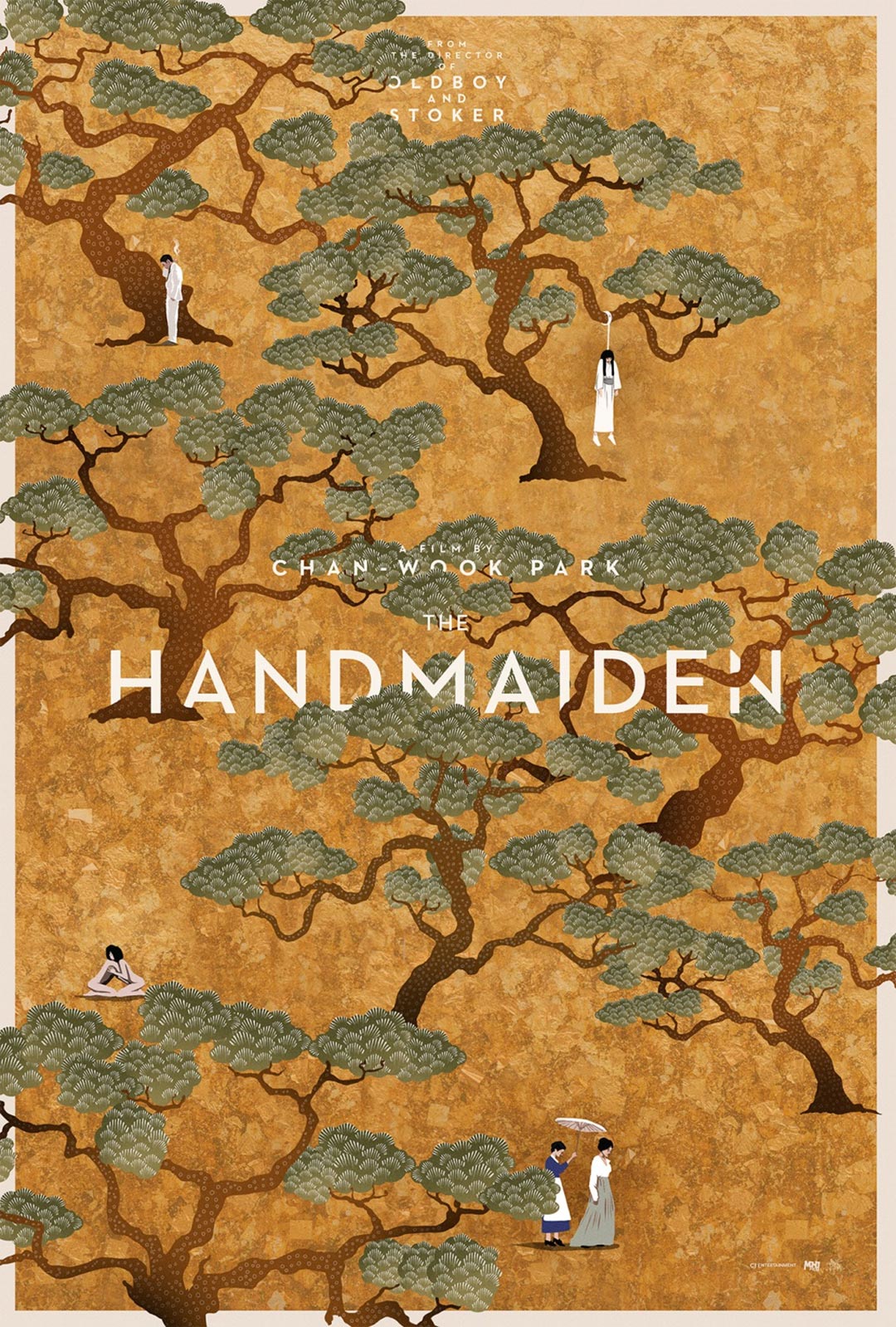Every decade or so, an anime film from Japan crosses over into the West, converting a new wave of fans to one of the country's most famous exports. Generally, what links these films together are familiar genre trappings to a Western audience. Akira and Ghost In The Shell became massive cult hits amongst nascent anime fans, who also had a love of science-fiction cinema, in the 1980s and early 1990s. And is it any wonder that Spirited Away, with its Alice In Wonderland framework, managed to translate so well that it ended up winning the Oscar for Best Animated Film (as voted for by a mostly American academy)? The 2010s has finally, perhaps, found its cross-over film in Your Name.
While it bears a very Japanese setting (with key parts of its cultural inheritance playing a part in the narrative), Your Name has the potential for universal appeal, with its hugely exciting and emotional storyline, unexpected twists and turns and gorgeous animation. Its director, Makoto Shinkai has been working in the industry for decades, having directed equally gorgeous films, such as The Place Promised In Our Early Years and 5 Centimeters Per Second, which have been mostly relegated to art-house cinemas and limited DVD releases in the West. Along with fellow modern master Mamoru Hosoda, he boasts a small but dedicated following in Japan and in the West. With Your Name, Shinkai has created one of the most financially successful films every released in Japan. It has earned just under $180 million without a wide release in North America. For comparisons sake, only the films of Hayao Miyazaki have managed to achieve this monumental goal (for the record, Spirited Away is the only film in history to earn $200 million without having a wide release in North America). Due to its success, many critics have been holding Shinkai up as the new Miyazaki. While claims like this do need to be mediated somewhat, in a purely financial and artistic level it is easy to make this comparison (in particular with Japanese critics searching for the heir to the throne left by the semi-retired Miyazaki). There are numerous reasons why it has been such a massive hit in its native Japan but its the trans-global nature of its story and characters that has the potential to reach a much wider audience.
Your Name, on paper, seems to have the trappings of a normal, high-concept rom-com. Mitsuha (Mone Kamishiraishi) lives in rural Itomori, bored with her life living in the middle of the Japanese countryside and helping to keep ancient traditions alive at her family shrine. Short-tempered Taki (Ryunosuke Kamiki) is a student living in suburban Tokyo, who works at an Italian restaurant and harbours a crush on one of his co-workers. Essentially, both are trying to navigate the ups-and-downs of teenage life and to find their find place in the world. Things become strange when Taki wakes up one morning in the body of Mitsuha and vice versa. The duo soon learn that on random days they are swapping bodies. When they re-awaken in their real bodies, they have no recollection of what their counterpart has been up to with their body, leading to some very funny, and sometimes emotional, scenes. The duo being to adapt to the body-swap, leaving a diary in each others phones, scrawling notes on scraps of paper or on their bodies and setting ground-rules on do's-and-do-not's. At first, they are disorientated but fairly soon they begin to influence each others lives (with their friends and family bewildered at these apparent personality changes) for the better and begin to fall in love with each other. However, with a bright comet looming beautifully in the sky, a cataclysmic event occurs at the half way point which throws the whole relationship into jeopardy as the mystery of why they are body-swapping begins to be revealed..
Body-swapping stories are actually one of my most hated tropes (in particular on television) as it is a cheap excuse for the writer to make really obvious jokes (which every other writer has made). Only a handful have pulled it off successfully, with Red Dwarf's and Buffy's springing to mind. While Your Name does make a couple of obvious jokes (being fascinated, or terrified, of .. certain aspects of the opposite gender's frame - which even in this film is expertly handled!) it manages to take the concept to new and uncharted territories. It uses the body-swap framework as a mechanic to launch a story that is really about the unseen connections that bind people together. The film has universal appeal due to its blending of familiar genres, such as rom-com, sci-fi and (spoilers) disaster-epic signposts. It is this, and the likability of its main characters, that holds the whole film together.
The aesthetic of the film is what makes Your Name stand apart from Miyazaki. While there certainly are similar elements to the grand master of anime, Shinkai is more interested in capturing that feeling of being a teenager and appealing to a contemporary audience. Joe Hisaishi's gorgeous full orchestra scores are replaced by bright and energetic J-Pop by the band Radwimps. Miyazaki's films look towards the past informing the present, Shinkai is more interested in separation and teenage alienation in the modern world. His almost photo-realistic renderings of Tokyo give a great sense of place, in contrast to the earthy tones of Mitsuha's home town. While Mitsuha and Taki are influenced by their very Japanese settings, they feel like any teenager - itching towards adulthood, compulsively interacting through their phones and trying to work out their place in the world. They are the heart of the film and transcend the setting into a universal coming of age story. Shinaki slowly unveils the plot - he is in no rush to reach its gut-punching and emotional third act without first properly establishing the characters and how the body-swapping shenanigans have affected them. This means when the third act comes around we are on the edge of our seats, nervously anticipating the conclusion. Shinkai creates a tender and exciting conclusion that puts the characters to the ultimate test.
Shinkai uses the concept of kataware doki, where day and night meet to become twilight, to juxtapose the characters, settings, gender, traditions and time; this is where the film's emotional core lies and how these link the characters together. The comet that hangs in the sky is both awe-inspiring to behold and threatening, stuck between two worlds of thought. The film quietly evokes the trauma of the 2011 earthquake / tsunami and the subsequent Fukushima disaster which has lead some Western critics to compare the film to another masterpiece of teen angst, Donnie Darko. This is all rendered in gorgeous 2D animation. A complete digital creation, Your Name boasts hyper detailed frames with stark colours, gorgeous fluid character movement and expressions, immaculate and intricate backgrounds and subtle CGI backgrounds. One sequence in particular becomes very experimental with its combination of pastel artwork and CGI. Instead of having the makings of a dry, existential drama, Your Name is warm, affecting, beautiful, exciting and funny. How Shinkai turned all these concepts and daring animation choices into a massive audience friendly event without losing the integrity of its story, is nothing short of a miracle.
Your Name is an engrossing film that encapsulates all the wonderful things animation can achieve. It's exciting, funny, hugely emotional, beautifully animated and takes an unexpected turn at the half way point to become life-affirming. Effortlessly blending genres and styles together, Your Name seems destined to become one of those rare anime films - a cross-over hit in the West (and an Oscar winner maybe?). If you can seen it on the big screen, I cannot recommend it enough - if you've only seen anime on the internet or on DVD, this unlike anything you have experienced before. Your Name is not to be missed, though with a very limited release in the UK it seems audiences might have to wait until the DVD. Like the potential of Mitsuha and Taki finally meeting each other face-to-face for the first time, it's worth the wait. My film of the year.
Rating 10/10








